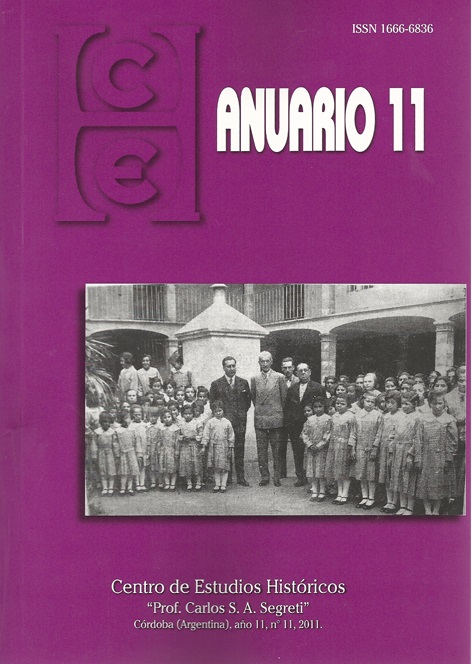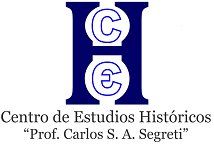Ethics and art as overcoming the deformed relations of late capitalism. A. Lunacharsky, A. Scriabin and the problem of bourgeois’ artistic heritage in revolutionary Russia
DOI:
https://doi.org/10.52885/2683-9164.v0.n11.23026Keywords:
Theodor W. Adorno, Russian Revolution, A. Lunacharsky, A. ScriabinAbstract
This article analyzes the ways in which operated the recovering of the revolutionary bourgeois artistic heritage, following the main ideas of Theodor W. Adorno’s Minima Moralia. The event that we will analyze is revolutionary Russia and, within it, the recovery that A. Lunacharsky makes of the composer A. Scriabin and his work. Our hypothesis is that art can play a key role in thinking critically the society from an ethical perspective. Lunacharsky tried to interrelate the two issues in the pursuit of building a new society. Thus, two aspects traditionally disdained by the left tradition, ethics and bourgeois artistic heritage, are recovered and placed in a revolutionary context to develop critical thinking about the old and the new society. The work is divided into two parts. In the first, we discuss the contributions of Adorno to the thinking of the problem of social criticism from ethics and art. In the second, we analyze the specific case of Lunacharsky, showing how his recovery of Scriabin’s work was vital to devise an emancipated society.
Downloads
References
ADAMOVSKY Ezequiel, Más allá de la vieja izquierda. Seis ensayos para un nuevo anticapitalismo, Buenos Aires, Prometeo, 2007.
FERNÁNDEZ VEGA José, Lo contrario de la infelicidad: promesas estéticas y mutaciones políticas del arte actual, Buenos Aires, Prometeo, 2009.
FITZPATRICK Sheila, “A. V. Lunacharsky: Recent Soviet Interpretations and Republications,” Soviet Studies, 18, núm. 3, 1967.
FITZPATRICK Sheila, Lunacharski y la organización soviética de la educación y de las artes (1917-1921), México, Siglo XXI, 1977.
FROLOVA WALKER, “The Soviet Opera Project: Ivan Dzerzhinsky vs. Ivan Susanin”, Cambridge Opera Journal, 18, núm. 2, 2006.
HOLLOWAY John, “¿Por qué Adorno?”, HOLLOWAY John, MATAMOROS Fernando y TISCHLER Sergio (comp.), Negatividad y revolución. Theodor W. Adorno y la política, Buenos Aires, Herramienta, 2007.
HOLTER Howard, “The Legacy of Luncharsky and Artistic Freedom in the USSR”, Slavic Review, 29, núm. 2, 1970.
JAMESON Frederic, Marxismo tardío. Adorno y la persistencia de la dialéctica, Buenos Aires, FCE, 2010.
KELLY Catriona y SHEPHERD David (ed.), Constructing Russian Culture in the Age of Revolution: 1881-1940, Oxford, Oxford University Press, 1998.
LUNACHARSKI Anatoli V., Religión y socialismo, Salamanca, Ediciones Sígueme, 1976.
LUNACHARSKY Antoly, “Taneyev y Scriabin”, LUNACHARSKY Anatoly, Sobre la literatura y el arte, Buenos Aires, Axioma, 1974.
MALLY Lynn, Culture of the Future: The Proletkult Movement in Revolutionary Russia, Berkeley, University of California Press, 1990.
VON GELDERN James, Bolshevik Festivals, 1917-1920, Berkeley, University of California Press, 1993.
WAGNER Richard, My Life, New York, Dodd, Mead and Co., 1911.
RESZLER André, La estética anarquista, México, FCE, 1974.
Downloads
Published
Issue
Section
License
Aquellos autores/as que tengan publicaciones con esta revista, aceptan los términos siguientes:
- Los autores/as conservarán sus derechos de autor y garantizarán a la revista el derecho de primera publicación de su obra, el cuál estará simultáneamente sujeto a una Licencia de reconocimiento de Creative Commons. Se puede compartir, copiar, distribuir, ejecutar y comunicar públicamente la obra, siempre que: a) se cite la autoría y la fuente original de su publicación (revista, editorial y URL de la obra); b) no se use para fines comerciales; c) no se altere, transforme o genere una obra derivada a partir de esta obra.
- Los autores/as podrán adoptar otros acuerdos de licencia no exclusiva de distribución de la versión de la obra publicada (p. ej.: depositarla en un archivo telemático institucional o publicarla en un volumen monográfico) siempre que se indique la publicación inicial en esta revista.
- Se permite y recomienda a los autores/as difundir su obra a través de Internet (p. ej.: en archivos telemáticos institucionales o en su página web) después del proceso de publicación, lo cual puede producir intercambios interesantes y aumentar las citas de la obra publicada. (Véase El efecto del acceso abierto).









